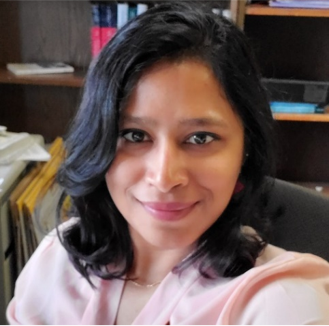Blog post by Praneeta Mudaliar
October 2021
Polycentric systems, defined as multiple, autonomous, overlapping decision centers engaged in mutual adjustment, coordination, and self-organization, are assumed to be well-suited to govern complex socio-environmental problems. Benefits of polycentric systems include diverse, adaptable institutions that can be matched to local conditions, improved social and environmental outcomes, and political innovation and citizen participation, compared to traditional, hierarchical governing systems. However, research on polycentric systems in the global South illustrates that these benefits are not realized to the extent predicted by theory. What explains this phenomenon?
From a cartesian perspective, the term “global South” (1) refers to regions in Africa, Asia, Latin America, and Oceania that have been subject to—and continue to deal with the legacies of— colonization, imperialism, and extractivism. These processes explain the gaping inequalities in living standards, life expectancy, income, and resources between the global South and former colonial powers located in the global North that continue to be rich today.
Such regions are also found within rich countries of the global North. Several states in the Appalachian Region of the United States, considered to be the “South within the North,” are shaped by histories of colonialism and processes of extractive fossil-fuel industrialism. The global South and the “South within the North” experience complex socio-environmental challenges, along with high levels of inequality and poverty, health crises, low levels of education, land-grabbing, and internally displaced populations. The climate crisis compounds these challenges, the impacts of which extend far beyond the boundaries of these nation states, and even continents.
Research and scholarship on polycentric systems and governance is thriving. A burgeoning literature demonstrates the promise and potential of polycentric governance for promoting climate mitigation and climate adaptation, institutional fit, learning, trust, and redundancy. While a substantial bulk of the scholarship that contributes to theory development on polycentric governance systems is situated in the global North, treatments of the concept to analytically examine how polycentric governance arrangements may function in regions outside of the global North are few. Similarly, comparative studies of the contexts in which polycentric systems are located and their institutional features are scant.
Thus, polycentric governance systems in the global South or the “South within the North” are likely to be different than the ones that emerge in former colonial powers. Overlaps among decision centers that create redundancies across actors and jurisdictions, a key aspect of polycentric systems, might lead to different outcomes in regions outside of rich nations. For instance, despite overlapping agencies in the polycentric system of Lake Victoria’s fisheries in east Africa , contextual factors such as unclear rules, rent-seeking, and lack of transparency and accountability are drifting the system into monocentricity. In Bangalore’s water sector in India, difficulties arise in coordinating civic services because of unclear responsibilities and geographical incongruencies among the 30 overlapping agencies. The elected government then performs the functions of these agencies. In the Appalachian region in the United States, highly influential coal and chemical companies lobby local and state governments to undermine environmental justice and manipulate community identity; to maintain their power. This “dark” side of cooperation among decision centers that serves to entrench asymmetric power dynamics needs further development in the polycentricity literature.
These examples may not necessarily mean that polycentric systems of the global South and the “South within the North” are incapable of actualizing the theorized benefits of polycentricity. It could also mean that the nature of polycentricity in the global South and the “South within the North” may not yet be theorized because investigations of polycentric systems in the global South and the “South within the North” have not kept pace with the scholarship on polycentric systems in the global North.
Just as the commons scholarship is integrating contestations of power and politics (2) in its scholarship, the polycentricity scholarship should shed its apolitical nature and more closely embrace the contextual, historical, and political conditions that influence the structure and functionality of polycentric systems. As, Keith Carlisle and Rebecca Gruby write in Polycentric Systems of Governance: A Theoretical Model for the Commons , “Among other things, the effectiveness of a governance system depends upon its objectives (e.g., efficiency or equity) and the historical and cultural context in which the governance system is embedded (emphasis my own). Developing greater clarity around the concept of polycentric governance and the conditions under which it may lead to desired outcomes in the global South will not only build our understanding of polycentricity and its promised benefits, but also advance theory that is more representative of the contexts, outside of the global North, that make up most of the world.
(1) Social scientists have argued that the term “global South” is vague, ambiguous, inaccurate, homogenizing, and misleading. I adopt the definition by Sinah Theres Kloß, “The global South should be understood as a process and practice, created and influenced by the ever-changing and never fixed status positions of persons and institutions.”
(2) This article compares the power dynamics in community-based watershed management groups situated in the global South and the South within the North.
Blog post by Praneeta Mudaliar














